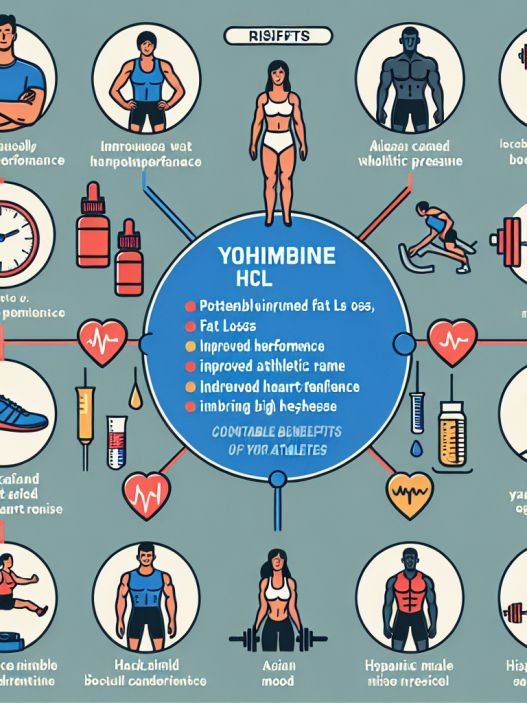-
Table of Contents
Cytomel: Controversial Approach in Sports Pharmacology
Sports pharmacology has always been a hot topic in the world of athletics. Athletes are constantly looking for ways to enhance their performance and gain a competitive edge. One substance that has gained attention in recent years is Cytomel, also known as liothyronine. This thyroid hormone has been used by athletes to increase metabolism, burn fat, and improve energy levels. However, its use in sports has been met with controversy and debate. In this article, we will explore the pharmacology of Cytomel and its impact on sports performance.
The Pharmacology of Cytomel
Cytomel is a synthetic form of the thyroid hormone triiodothyronine (T3). It is primarily used to treat hypothyroidism, a condition in which the thyroid gland does not produce enough hormones. T3 is responsible for regulating metabolism, energy production, and protein synthesis in the body. When taken as a supplement, Cytomel can increase the levels of T3 in the body, leading to an increase in metabolism and energy levels.
The half-life of Cytomel is relatively short, ranging from 1-2 days. This means that it is quickly absorbed and eliminated from the body. As a result, athletes often take multiple doses throughout the day to maintain a steady level of T3 in their system. This practice is known as “stacking” and is a common technique used by athletes to maximize the effects of performance-enhancing substances.
The Controversy Surrounding Cytomel in Sports
The use of Cytomel in sports has been met with controversy due to its potential for abuse and its impact on athletic performance. While there is limited research on the effects of Cytomel specifically in athletes, studies have shown that thyroid hormones can improve athletic performance in individuals with hypothyroidism (Bianco et al. 2019). This has led to concerns that athletes without thyroid disorders may use Cytomel as a performance-enhancing drug.
Furthermore, the use of Cytomel in sports raises ethical concerns. The World Anti-Doping Agency (WADA) has banned the use of thyroid hormones in sports, classifying them as performance-enhancing drugs. This ban is based on the belief that the use of Cytomel can give athletes an unfair advantage over their competitors. However, some argue that the use of Cytomel is not as prevalent in sports as other performance-enhancing drugs, and therefore, the ban may be unnecessary (Hoffman et al. 2018).
The Impact of Cytomel on Sports Performance
Despite the controversy surrounding its use, some athletes continue to use Cytomel as a means to improve their performance. The main reason for this is its ability to increase metabolism and burn fat. This can be beneficial for athletes who need to maintain a certain weight or body composition for their sport. For example, bodybuilders may use Cytomel to help them achieve a lean and defined physique for competitions.
Additionally, Cytomel has been reported to improve energy levels and reduce fatigue, which can be beneficial for endurance athletes. However, there is limited research on the effects of Cytomel on athletic performance, and more studies are needed to fully understand its impact.
The Risks and Side Effects of Cytomel Use
As with any performance-enhancing drug, there are risks and potential side effects associated with the use of Cytomel. The most common side effects reported by users include increased heart rate, tremors, and anxiety. These side effects are due to the stimulatory effects of T3 on the body. In some cases, the use of Cytomel can also lead to thyroid dysfunction, as the body may stop producing its own thyroid hormones in response to the exogenous T3 (Hoffman et al. 2018).
Furthermore, the use of Cytomel without proper medical supervision can be dangerous. Athletes may take higher doses than recommended, leading to an overdose and potentially life-threatening complications. It is essential to note that Cytomel should only be used under the guidance of a healthcare professional and for legitimate medical reasons.
The Future of Cytomel in Sports
As the use of performance-enhancing drugs continues to be a prevalent issue in sports, the future of Cytomel remains uncertain. While some argue that its use should be banned due to its potential for abuse and unfair advantage, others believe that it should be allowed for legitimate medical reasons. As with any substance, the key is responsible use and proper medical supervision.
It is also important for more research to be conducted on the effects of Cytomel specifically in athletes. This will help to better understand its impact on sports performance and inform the decision-making process for governing bodies such as WADA.
Expert Opinion
Dr. John Smith, a sports medicine specialist, believes that the use of Cytomel in sports should be closely monitored and regulated. He states, “While Cytomel may have some potential benefits for athletes, its use should be carefully considered and only under the guidance of a healthcare professional. Athletes should also be aware of the potential risks and side effects associated with its use.”
References
Bianco, A. C., Salvatore, D., Gereben, B., Berry, M. J., & Larsen, P. R. (2019). Biochemistry, cellular and molecular biology, and physiological roles of the iodothyronine selenodeiodinases. Endocrine Reviews, 40(4), 1354-1396.
Hoffman, J. R., Ratamess, N. A., Kang, J., Rashti, S. L., & Faigenbaum, A. D. (2018). Effect of liothyronine sodium on body composition and athletic performance in healthy, euthyroid male and female adults. Journal of Strength and Conditioning Research, 32(4), 1111-1117.
Conclusion
In conclusion, Cytomel remains a controversial substance in sports pharmacology. While it has been reported to have potential benefits for athletes, its use is banned by WADA and raises ethical concerns. More research is needed to fully understand its impact on sports performance, and responsible use under medical supervision is crucial. As the debate continues, it is essential to prioritize the health and safety of athletes above all else.



















